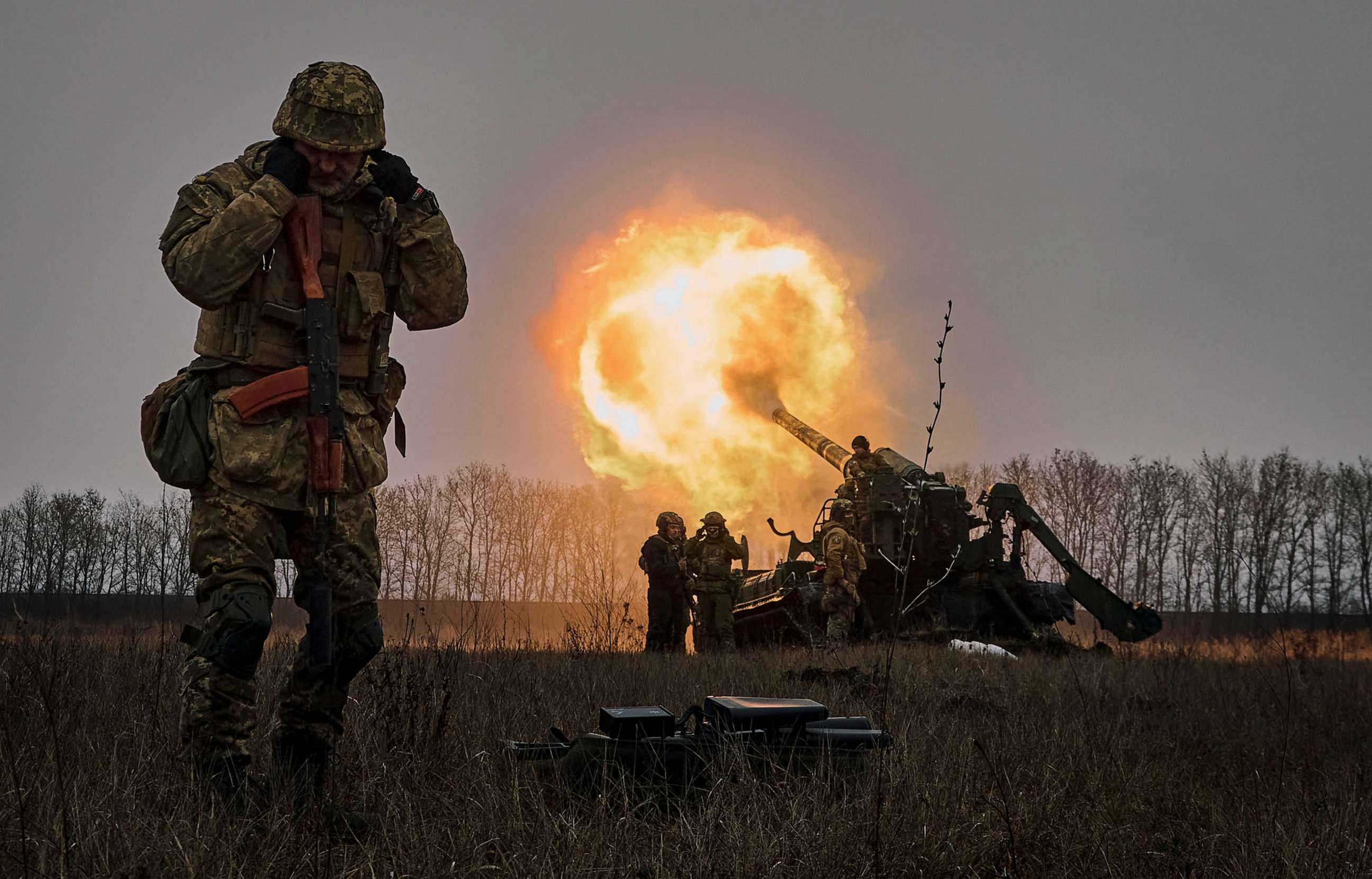'Nonstop shelling': Former US Marine in Bakhmut, Ukraine, says fighting is 'chaotic'
Troy Offenbecker, a former U.S. Marine, said there was "nonstop" shelling.
KYIV -- The average lifespan on the frontline of the fierce fighting in the city of Bakhmut is "four hours," according to an American fighting side by side with the Ukrainian army against Russian forces in the Donbas.
Former U.S. Marine Troy Offenbecker, of Michigan, told ABC News that the situation in the city, which has seen some of the deadliest fighting since Russia's full-scale invasion, is "chaotic" and has been dubbed "the meat grinder."
"It's been pretty bad on the ground," he told ABC News. "A lot of casualties. The life expectancy is around four hours on the frontline."

For months, Russian forces have been trying to encircle the city, but have been met so far with fierce Ukrainian resistance, so far denying the Kremlin a symbolic victory ahead of the anniversary of the invasion.

"[The artillery] is nonstop," Offenbecker, who fights with the International Legion, a military unit made up of foreign fighters, told ABC News. "[Russia] have maybe run into a shortage of shells lately, but the past couple of weeks it's been nonstop. All day and night."
Ukrainian officials have said they believe Russia's long-awaited offensive has already begun, but the assault has been complicated by heavy losses of personnel, equipment and logistical challenges.

"With the amount of shelling, the amount of armor that they've brought in, I think it's started," he said. "It's just hard because the winter hasn't been as cold as it usually is. They can't move as much armor as I'm sure they would like to with the ground."
The city has been the site of some of the bloodiest fighting since the war began. According to Offenbecker, "quite a few" civilian families remain in the parts of the city not yet taken by Russian forces, despite an order to evacuate last week.
"A lot of these families are poor," he said. "They don't have anywhere to go… even if they wanted to. So the reality is there still are a lot of civilians that are stuck in the middle of this."
ABC News' Oleskiy Pshemyskyi contributed to this report




